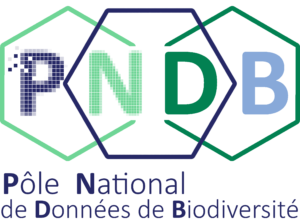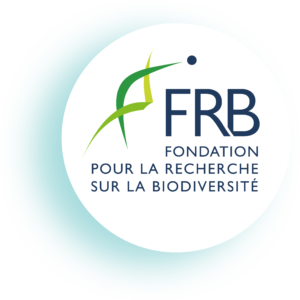COpé
The Operational Consortium
The operational consortium of the challenge also called “COpé” plays a central role in the organisation and the smooth running of the challenge: as a trusted third party, it ensures the scientific animation, the evaluation of the AI systems, the constitution of datasets and their access via the “IA-BiodivNet” environment.
To best respond to all aspects of the organisation of the challenge, the operational consortium brings together the following competences:
- LNE (French National Laboratory for Metrology and Testing), the COpé pilot,
- FRB (French Foundation for research on biodiversity),
- MNHN (Muséum National d’Histoire Naturelle) by mobilising the teams of the UMS PatriNat (OFB-CNRS-MNHN) via the PNDB research infrastructure “Pôle National de Données de Biodiversité”.
LNE
LNE is responsible for steering the Operational Consortium.

LNE has unique expertise in Europe in the evaluation of AI systems. It has carried out more than 950 evaluations of intelligent systems since 2008, notably in language processing (translation, transcription, speaker recognition, etc.), image processing (person recognition, object recognition, etc.) and robotics (autonomous vehicles, service robots, agricultural robots, etc.). It participates in the major challenges of AI by developing standards to guarantee and certify these technologies, in particular in collaboration with the main standardisation committees in the field (UNM81, Afnor IA, ISO/IEC JTC1/SC42, CEN-CENELEC’s AI Focus Group, etc.).
EPIC status guarantees the independence, neutrality and impartiality of evaluations carried out by LNE.

LNE, which is leading the operational consortium and responsible for the evaluations, will therefore put its extensive experience in the evaluation of AI systems and in the organisation of challenges at the service of the IA-Biodiv Challenge. To carry out this mission, LNE’s team will draw on the expertise in biodiversity, the data sets and the large network of the MNHN and the FRB.
PNDB

MNHN/PNDB will provide the operational consortium with its expertise to build and manage the biodiversity datasets required for the challenge and will be responsible for the creation of the IA-BiodivNet virtual research environment.
As part of the construction of infrastructures piloted by the Ministry of Higher Education, Research and Innovation, the Muséum national d’Histoire naturelle has been in charge, since March 2018, of carrying a research infrastructure named “Pôle National de Données de Biodiversité” (PNDB). This infrastructure is based on a consortium of institutions (FRB, BRGM, CIRAD, CNRS, IFREMER, INERIS, INRAE, IRD, OFB, MNHN, Université Montpellier). Within this framework, the PatriNat UMS is responsible for the operational implementation of the underlying information system.
The PNDB data portal, which has been operational since mid-2020, provides scientists in the national community with tools for accessing biodiversity data and metadata, from the molecular to the ecosystem scale, and from anthropo-ecosystems https://data.pndb.fr/ and for processing and linking data https://ecology.usegalaxy.eu/. The PNDB is setting up scientific coordination, exchange and training actions to contribute to a better structuring of the national scientific community.
The MNHN, through the PNDB, will provide the operational consortium with its expertise in the creation and management of biodiversity datasets and will be responsible for the creation of the IA-BiodivNet virtual research environment. In addition, its expertise in biodiversity will be necessary to define the metrics and reference data required to evaluate the participants’ approaches. All of this work will be based on the PNDB infrastructure, thus enabling the mutualisation of IA-BiodivNet with the information system set up within the framework of the infrastructure.
FRB

The Foundation for Research on Biodiversity (FRB) is a scientific cooperation foundation that supports and acts with biodiversity research to increase and transfer knowledge at national and international levels. Based in Paris, it currently has 10 founding members with ten public research institutions (CNRS, MNHN, INRAe, Cirad, BRGM, IRD, Ifremer, Ineris, Univ. Montpellier, OFB) and one company. The FRB develops thematic programmes, launches or manages calls for projects on behalf of third parties, provides support for decision-making at the national and international levels, and supports young researchers – in the vast field of biodiversity, for different environments (forests, freshwater, oceans, etc.) and levels of organisation of living organisms (from genes to landscapes).
The FRB supports projects of scientific excellence within specific programmes and calls for proposals: projects on ocean acidification (in conjunction with the Ministry of Ecological Transition and Solidarity), projects on models and scenarios to anticipate the future of natural systems and human societies, young researcher awards, etc. As part of this support for research, the FRB developed a specific programme in 2010 called the “Biodiversity data synthesis and analysis centre” (Cesab). This is a collaborative research facility in the field of biodiversity. Unique in France (10 synthesis centres worldwide), Cesab is located in Montpellier, at the heart of a scientific centre that is recognised worldwide for the excellence of its research in ecology (1st in the 2019 Shanghai ranking).
The FRB will be in charge of the collaborative animation of the challenge. This role will be carried out by a “scientific facilitator”.
To carry out its missions, the FRB will bring its expertise in biodiversity to contribute to the definition of metrics, its experience in the collaborative management of research projects and data analysis, its experience in knowledge transfer and its vast national and international network of researchers. The missions will be based on the “Science and research communities” cluster in which the specific Cesab programme is included.
The FRB will have a role of relay of the participating consortia, essential for the success of the challenge, the good scientific collaboration within and between communities, and the constitution of a community using IA-BiodivNet.
The FRB will also have an important role in the communication and dissemination of the challenge.
The missions of the Operational Consortium
The ANR entrusts the operational organisation of the challenge to a dedicated Operational Consortium (named “COpé”). The missions of the latter meet four main needs:
- the organisation and implementation of IA assessment campaigns;
- the development of the virtual research environment called IA-BiodivNet;
- the animation of the collaboration of the research consortia participating in the challenge;
- Dissemination and communication of the project results.
Organisation of evaluation campaigns
Four annual evaluation campaigns will be organised.
The aim will be to define the criteria to be studied and the comparison methods to be used, with a view to drafting the evaluation plan.
The evaluation plan will serve as a reference for the organisation of the evaluation campaigns, and will allow the participating consortia to know how the approaches are compared. At the end of the evaluation campaigns, the COpé will evaluate the results obtained by each of the participating consortia’s approaches and produce an evaluation report presenting these results.








